第120章
Therefore, if he visits a foreign country, he makes arrangements to have his bones returned to China in case he dies; if he hires to go to a foreign country on a labor contract, there is always a stipulation that his body shall be taken back to China if he dies; if the government sells a gang of Coolies to a foreigner for the usual five-year term, it is specified in the contract that their bodies shall be restored to China in case of death.On the Pacific coast the Chinamen all belong to one or another of several great companies or organizations, and these companies keep track of their members, register their names, and ship their bodies home when they die.The See Yup Company is held to be the largest of these.The Ning Yeong Company is next, and numbers eighteen thousand members on the coast.Its headquarters are at San Francisco, where it has a costly temple, several great officers (one of whom keeps regal state in seclusion and cannot be approached by common humanity), and a numerous priesthood.In it I was shown a register of its members, with the dead and the date of their shipment to China duly marked.Every ship that sails from San Francisco carries away a heavy freight of Chinese corpses--or did, at least, until the legislature, with an ingenious refinement of Christian cruelty, forbade the shipments, as a neat underhanded way of deterring Chinese immigration.The bill was offered, whether it passed or not.It is my impression that it passed.There was another bill--it became a law--compelling every incoming Chinaman to be vaccinated on the wharf and pay a duly appointed quack (no decent doctor would defile himself with such legalized robbery) ten dollars for it.
As few importers of Chinese would want to go to an expense like that, the law-makers thought this would be another heavy blow to Chinese immigration.
What the Chinese quarter of Virginia was like--or, indeed, what the Chinese quarter of any Pacific coast town was and is like--may be gathered from this item which I printed in the Enterprise while reporting for that paper:
CHINATOWN.--Accompanied by a fellow reporter, we made a trip through our Chinese quarter the other night.The Chinese have built their portion of the city to suit themselves; and as they keep neither carriages nor wagons, their streets are not wide enough, as a general thing, to admit of the passage of vehicles.At ten o'clock at night the Chinaman may be seen in all his glory.In every little cooped-up, dingy cavern of a hut, faint with the odor of burning Josh-lights and with nothing to see the gloom by save the sickly, guttering tallow candle, were two or three yellow, long-tailed vagabonds, coiled up on a sort of short truckle-bed, smoking opium, motionless and with their lustreless eyes turned inward from excess of satisfaction--or rather the recent smoker looks thus, immediately after having passed the pipe to his neighbor--for opium-smoking is a comfortless operation, and requires constant attention.A lamp sits on the bed, the length of the long pipe-stem from the smoker's mouth; he puts a pellet of opium on the end of a wire, sets it on fire, and plasters it into the pipe much as a Christian would fill a hole with putty; then he applies the bowl to the lamp and proceeds to smoke--and the stewing and frying of the drug and the gurgling of the juices in the stem would well-nigh turn the stomach of a statue.